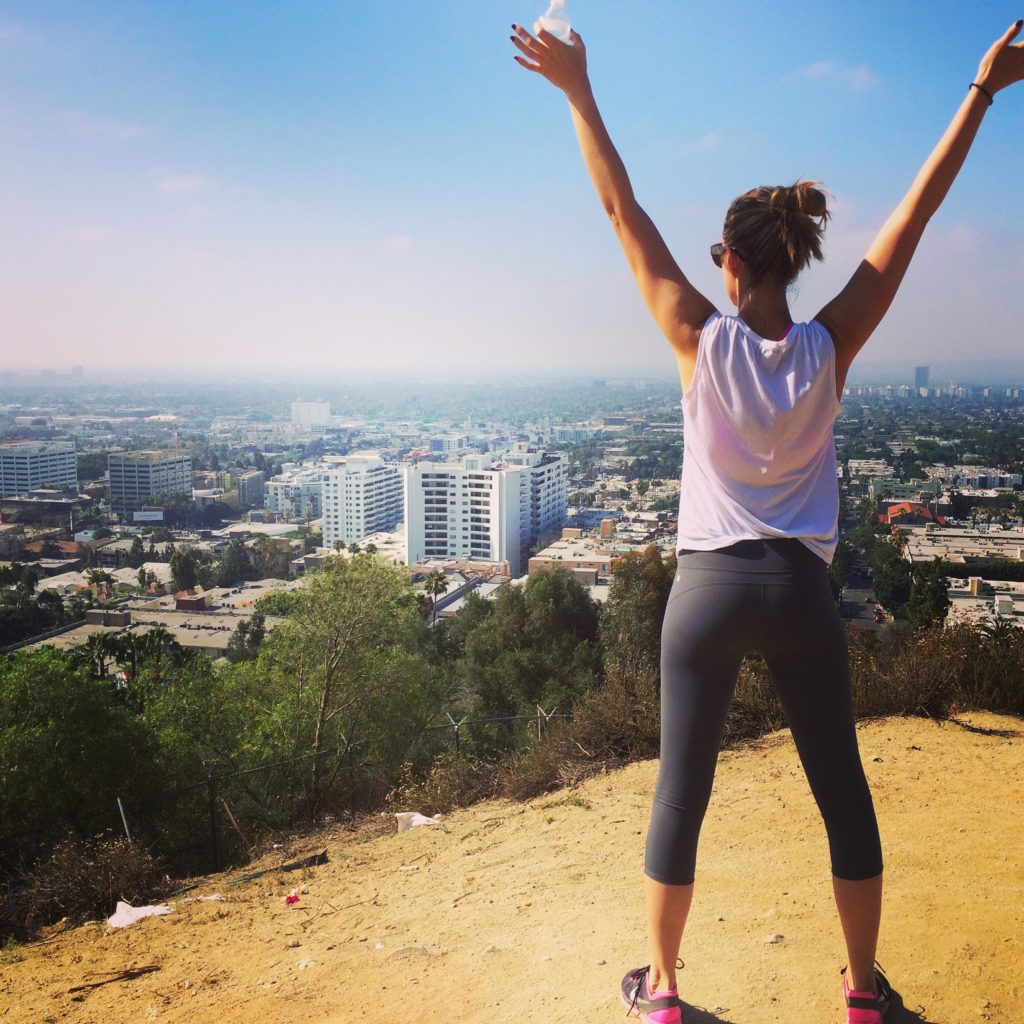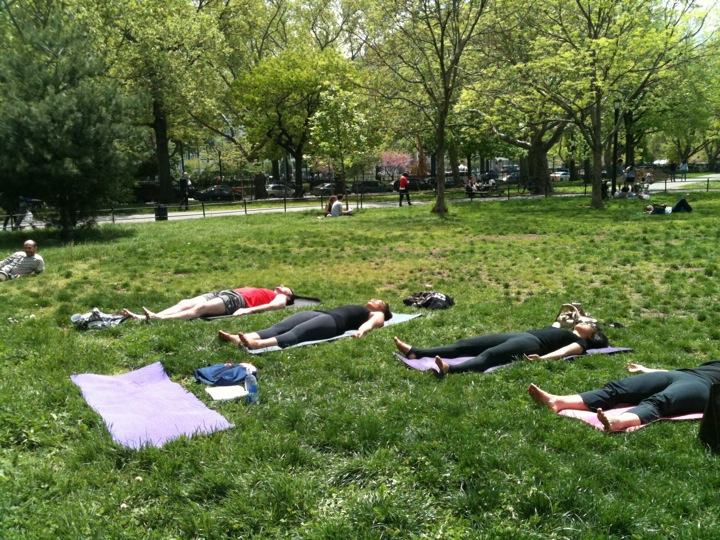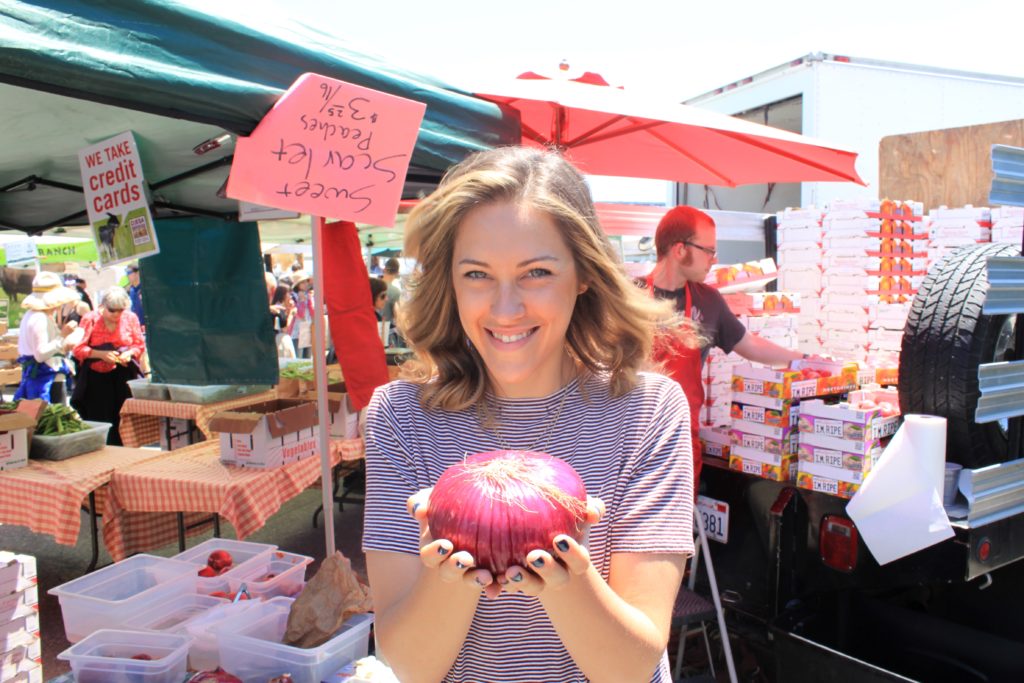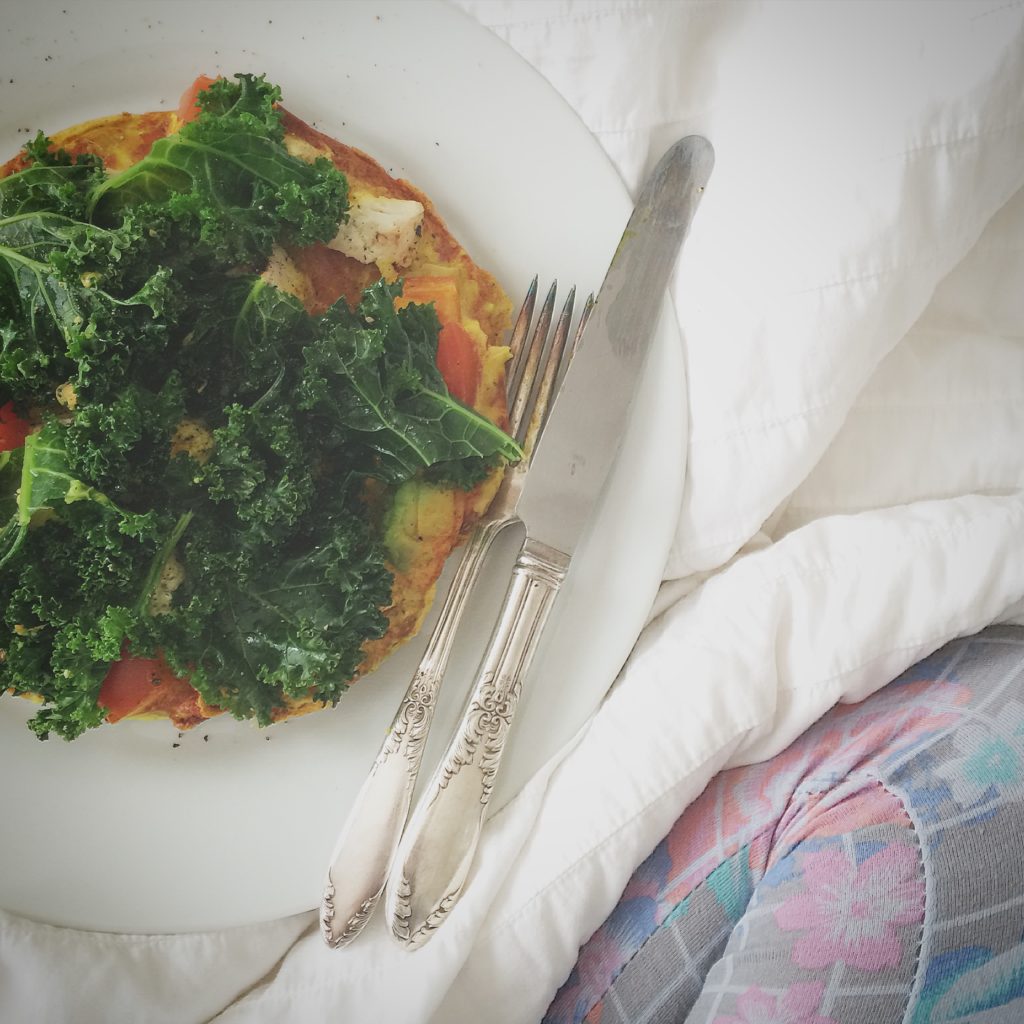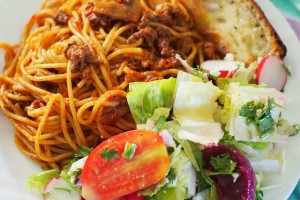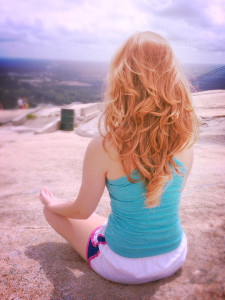When I decided to become a health coach, I really struggled with what I was going to call myself. For me my title was going to be the few words that define me in the health and wellness world so it had to be a good one. I tried on health coach, lifestyle coach, health and wellness coach, wellness coach, wellness and lifestyle coach. All I knew was that I definitely didn’t want the word “holistic” involved.
Not Just for Super Flexible Yoga Teachers
by Beth Pocock
My opinion of the word was that it was broad (and wellness wasn’t???), bordering on airy fairy and just so foreign. I was afraid it would give my future clients the wrong impression of me and my coaching style (not that I had any idea what my style or niche was when I started out). If I’m being honest it was downright intimidating. I thought holistic people were only super flexible yoga teachers, naturopaths or vegans. Even throughout my health coach training, practicing yoga twice a week, meditating and mindfully eating I still didn’t consider myself a “holistic person”.
I finally embraced the word after I experienced a true feeling of connection between my mind and body, during Savasana. Savasana is that final pose at the end of a yoga session when you lie on your back with your eyes shut, palms facing up and you breathe deeply. Or more commonly known as the time to relax after a full on yoga workout! I floated into a deep meditation where my mind was able to run free.
I can’t properly explain what I saw nor do I want to bore you with it (or weird you out!) but what I will say is that I felt I left my body for a few minutes, saw the world through my third eye (space between the eyebrows) and heard my intuition loud and clear. It said, everything was going to be alright. Call this what you will, I certainly don’t believe everyone needs to experience a divine moment to say they live holistically, I just wanted to give you an example of me finally realising and accepting the connection between my mind, environment, body and spirit, which pretty much is the definition of holistic, the idea that the whole is merely the sum of its parts. Here I am now, Beth Pocock, Holistic Health Coach.
So how can we practice it and why is it important for our health and well-being? As mentioned above, for me holistic living is made up of parts. It is becoming conscious of your overall health. Vitality is influenced by nutrition, exercise, environment, career, relationships and spirituality. For example, if I have a terrible headache, my first reaction is not to take 2 Aspirin. I take into account what I did/didn’t do that day. Did I drink enough water? Did I have a stressful day? Did I eat enough veggies? Did I get enough restorative sleep the night before? If I find that something was lacking, let’s say I had a really tight deadline and skipped lunch. I’d endeavour to balance myself out again to combat the headache.
I might take 5 minutes to practice my breathing, take a look at my schedule and see what I can do without, or do a little self-care like give myself a body scrub, go for a run or prepare a nourishing dinner for myself and partner. My bottom line, when it comes to holistic living, embrace your authentic self and live a life that promotes growth, health, vibrancy and gratitude, not just for yourself, but for others as well.
Here are 4 ways I practice a holistic approach to life and why I believe it is so important to your overall health, well-being, and happiness. You might just feel a little less intimidated by the word after your read these.
Four Easy Steps to Holistic Living
1. Listen to your Body and Deconstruct Cravings
Food plays a huge role in our lives, obviously, we need to eat to survive. But food is more than just sustenance. It affects our mood, how we function day to day, and how we perform in the world. We can crave certain types of food when we are tired, or overeat when feeling anxious. We are influenced and confused by diet trends, celebrity endorsements and big food companies, it’s overwhelming! Stripping it back, keeping it simple and eating intuitively can help sift through the bull. Whenever a client asks me about eating a certain food, I tend to ask questions about how it makes them feel rather than telling them if it’s good or bad. I’d ask, does it energize you or leave you craving more? How does your body react to that food? Simple questions can encourage exploration of the emotional connection.
In my opinion, learning what foods make you thrive will teach you how to read the signs your body is giving you. For some reason when Iive had a really long day, I’ll crave red meat. Now, I eat mostly a plant-based diet these days so when I do experience this craving I know it’s more of an emotional one. Then I make myself Spaghetti Bolognese. I consider myself a flexitarian so feel OK eating sustainable, organic, free range meat. Hard rules often leave me feeling guilty which then usually leads to negative self-talk. So, I listen to what my body is asking for and give it to her.
Here’s my recipe for Guilt Free Spaghetti Bolognese.
Ingredients:
1 tbsp extra virgin olive oil
1 tbsp garlic, finely diced
1 red onion, finely diced
2 x medium carrots, diced
1 x large zucchini, diced
11oz (300g) cremini mushrooms, sliced
1 tsp dried oregano
1/4 tsp cayenne pepper
2 lb (900g) organic grass fed beef, ground
2 x 700g Passata (tomato sauce with no added ingredients)
1 tbsp tomato paste
Pink Himalayan sea salt fresh cracked pepper to taste
300g x 100% wholewheat spaghetti
Fresh basil, roughly shredded
Method:
Heat oil in a large pot over medium-high heat. Add garlic and onion and saute until soft and translucent.
Add diced carrots, zucchini and mushrooms and cook for 5-7 minutes or until veggies have softened slightly and most of the liquid from the mushrooms has cooked off.
While veggies are cooking, heat large frypan on medium-high heat. Once hot, add ground beef and cook until browned, breaking meat up and turning ocassionally.
Now, transfer cooked beef into large pot with the veggies. Season beef with dried oregano, a little salt, cracked pepper and stir to combine.
Add Passata sauce and tomato paste. Crank heat to high and bring to the boil for a minute. Add a little more salt and pepper to taste.
Turn heat down to a gentle simmer and cook sauce for approx. 45 mins – 1 hour until rich and thick. The longer you let the sauce simmer the richer it will be.
For the pasta, boil a pot of water, add salt and then the pasta. Stir occasionally to avoid pasta from clumping and cook until al dente (8-9 mins depending on type of pasta) or until a texture of your liking.
Once pasta is cooked, drain well and serve with bolognese sauce immediately. Garnish with fresh basil and a little cracked pepper.
Note:
Use any type of pasta that suits you and your lifestyle. I go for wholewheat as I try and avoid white flours. Sometimes I opt for quinoa or stir through baby spinach if I want a lighter option.
The bolognese sauce will last in the fridge for up to 3-4 days and will taste even better the next day. Alternatively, freeze the leftovers for those emergencies when you’re home late from work and not up for cooking.
Food and cooking is my jam, I love knowing about the composition of foods, and love learning where my food comes from and how it makes me strong and vibrant. I perform at my best when I fuel my body with nourishing foods. Eating causes a ripple effect that flows down into the other parts of your life. Food is my number one choice for living holistically.
2. Learn to Breathe
When I worked in the corporate world I would actually forget to breathe. No joke. I would be sitting at my desk racing to meet a deadline then all of sudden I’d feel out of breath, like I had been holding it (because I had!). Since learning the technique of soft belly breathing (breathing from the diaphragm) I can naturally calm myself in stressful situations, think clearer which leads to better decision making, curb sugar cravings at the peak of my stress, and help ease my racing mind at night.
You can learn the simple technique of soft belly breathing, (link below) or use the yoga practice of Pranayama to learn to breathe for stress reduction, and mindfulness.
3. Move your Body Daily
Moving your body daily is not only important for your physical health, but can be crucial to your mental health as well. Sweating it out is cleansing. It is a chance to expel any tension accumulated that day. It is especially beneficial if you are feeling overwhelmed, overworked or just over it.
Finding a style of exercise that feels good for you and not just what people say you should do will be the reason you get out of that bed. For me, running and yoga are like my weekly therapy sessions. After a good run or yoga session I feel clear, refreshed, energized, and motivated to make good decisions around how I spend the rest of the day.
Why I consider exercise a piece of the holistic pie is again that strong connection between exercise and the other elements. For example, I consider what I eat depending on the type of exercise I’m doing that day, my stress levels are substantially lower on a day I exercise compared to when I don’t. I experience a better quality of sleep which leads to a more productive day, I’m in a better mood and ailments like headaches, colds and flus are infrequent. If you shift your mindset around exercise, thinking of it less like a chore and more of a necessity to function at your optimal self, you will wonder how you ever lived without it!
4. Self-Care
Self-care is not being selfish. Doing what you love makes you a better person, mother, friend, manager or employee. We are all guilty of saying, if only I had more time I’d try that new yoga studio, or read that book, or take that cooking class. The reality is we will never have more time. Time is an equal playing field for everyone and not one person has more time than the other.
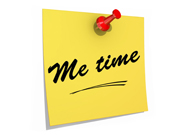 All we can do is make a plan to carve out a chunk of time, and do something you love. Like many other women I’m a natural giver which is why I love being a holistic health coach so much, but being a giver can also stretch me pretty thin. Learning to say no to that social engagement, favour, or job, means I can prioritize my schedule and focus some time on what I love and those I love, which includes myself.
All we can do is make a plan to carve out a chunk of time, and do something you love. Like many other women I’m a natural giver which is why I love being a holistic health coach so much, but being a giver can also stretch me pretty thin. Learning to say no to that social engagement, favour, or job, means I can prioritize my schedule and focus some time on what I love and those I love, which includes myself.
When you find what truly re-energizes you, other aspects of your life will ultimately feel easier. I love cooking. I love everything about it, from sourcing the ingredients, preparing the ingredients, cooking them and then sharing what I created, feeds my soul. Of course not everyone shares my enthusiasm for cooking which is OK, you could love going for coffee with a close friend, taking a long hot bath or sitting down in a comfy chair to read a chapter or two of your favourite book. The most important thing is that you recognise that this time for yourself is critical to your well-being and happiness. Think of it as your medicine and that guilt will float away. And suddenly you find yourself living holistically.
Photo Credits:
Feature Image Droplets on Leaf by Easa Shamlh
Girl on Mountain: Beth Pocock
Savasana in the Park by Courtney Bond Myers
This is me: Beth Pocock at Market
Spinach Pizza by Beth Pocock
Spaghetti Bolognese by Yutaka Seki
Learn to Breathe by Jillian
Move your Body Daily Bicycle by Keoni Cabral
Me Time by One Way Stock

